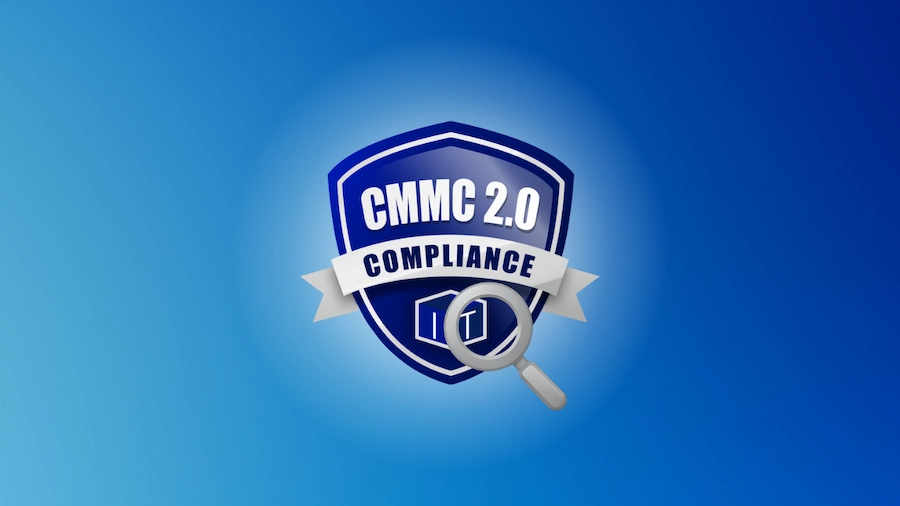Contractors weighing their options for CMMC Level 2 often find themselves unsure about where self-assessments fit into the bigger picture. The requirements appear straightforward on paper, yet the real-world application depends heavily on contract type, data sensitivity, and how the DoD classifies the information handled. As interest grows around shorter paths to compliance, a clear understanding of what a self-assessment can and cannot cover becomes essential.
Self-assessment May Suffice for Non-prioritized Contracts with less Sensitive CUI
Self-assessment can meet the requirement for certain contract types that involve lower-risk Controlled Unclassified Information (CUI). These contracts fall into a category where the Department of Defense does not mandate third-party validation but still expects adherence to CMMC level 2 requirements. Contractors in this space may benefit from a streamlined approval process while remaining accountable for accuracy in their submissions.
The allowance for self-assessment is based on reduced risk rather than relaxed security expectations. Although the controls apply the same way, the oversight structure changes depending on how critical the information is. Because of this, organizations handling low-impact CUI may be able to rely on internal verification as part of their compliance path.
Contracts Involving High-risk CUI Typically Require Third-party Certification
Contracts classified with heightened sensitivity generally cannot rely on internal review alone. These agreements require a C3PAO to validate compliance and provide independent assurance that CMMC Controls are properly implemented. Third-party certification ensures the government receives an objective review for work involving higher-value targets.
Independent assessment also reduces uncertainty around interpretation. Contractors dealing with this level of CUI benefit from added scrutiny because it eliminates gray areas that often surface during Preparing for CMMC assessment activities. For organizations managing high-risk environments, self-attestation would not carry the level of trust the DoD expects.
A Self-assessment Still Demands Submission of Scores and Executive Affirmation
Even contracts that allow self-assessment require formal score submissions to the Supplier Performance Risk System (SPRS). This step includes documenting gaps, planned remediation, and timelines for completion. An executive affirmation also must be signed, confirming the accuracy of the self-assessment under penalty of federal accountability.
This process places responsibility directly on leadership. The affirmation adds weight to the accuracy of the review, which is why many teams still rely on CMMC compliance consulting to verify that their assessments meet CMMC compliance requirements. Internal scoring without expert validation risks errors that could affect contract eligibility.
Self-assessment Offers Shorter Lead Time but May Limit Contract Eligibility
Completing a self-assessment can shorten the preparation timeline compared to scheduling a C3PAO assessment. Organizations can move directly into the formal submission once they finish internal scoring and supporting documentation. This can be appealing to contractors that need to move quickly to remain competitive.
That efficiency, however, comes with constraints. Contractors relying exclusively on self-assessment may find themselves excluded from future opportunities that require third-party verification. As the DoD introduces more contract tiers, internal assessments may not meet expectations for certain long-term agreements.
Reliance on Self-assessment Alone Can Raise Doubts About Control Effectiveness
Self-assessment requires honest internal evaluation, yet some agencies question whether organizations can accurately measure their own gaps. Without external review, subtle weaknesses may go unnoticed, leaving security exposures unaddressed. This issue is common among teams new to the intro to CMMC assessment process.
The DoD recognizes this concern, which is why the distinction between self-attested and certified contractors exists. Internal reviews can identify baseline compliance, but they may not catch misconfigurations or overlooked requirements. This is where CMMC consultants often provide supplemental guidance even when self-assessment is technically allowed.
Awarded Contracts Must Clearly State Whether Self-assessment or C3PAO Is Needed
Each contract specifies the compliance path the contractor must follow. The requirement is not optional and cannot be substituted. If the contract calls for third-party assessment, a self-assessment cannot take its place. Contractors must review the award language carefully before beginning their compliance journey.
Understanding this distinction helps prevent misalignment later in the process. Organizations sometimes assume they qualify for self-attestation because their environment feels low-risk, only to discover that contractual obligations require a certified audit. Reviewing award requirements early avoids costly course corrections.
Self-assessment Status Doesn’t Cover Advanced Verification of Every Control
Certain technical expectations within CMMC level 2 compliance require deeper validation than a self-review can provide. Controls involving logging, incident tracking, and configuration baselines often need specialized tools or independent verification to ensure accuracy. Self-assessment does not include these deeper checks.
Because these areas require technical precision, many organizations conduct a CMMC Pre Assessment even when planning to self-attest. This internal review exposes gaps that would otherwise remain hidden, strengthening overall CMMC security posture even without third-party involvement.
Even When Allowed, Self-assessment Places Full Burden of Proof on the Contractor
Self-attestation shifts all responsibility onto the contractor. The organization must defend its scores, its interpretations of CMMC level 2 requirements, and its implementation of CMMC Controls during any government review. If discrepancies arise, the contractor—not a C3PAO—must justify every detail.
This accountability drives many teams to partner with experts for compliance consulting or government security consulting support. MAD Security assists contractors by guiding internal assessments, verifying documentation, and helping organizations ensure that their self-attested compliance meets the standards required for contract eligibility.




